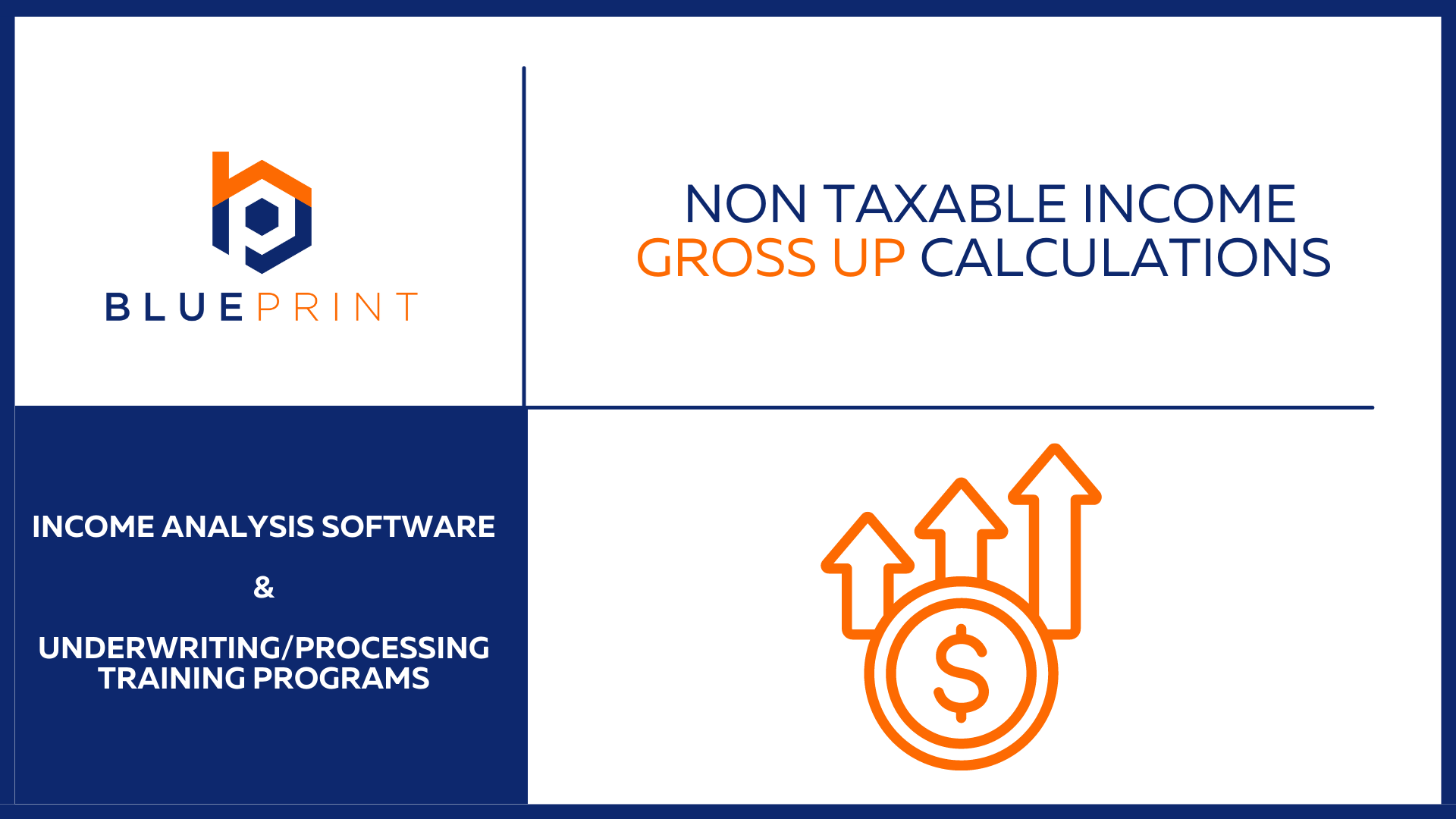How do I gross up non-taxable income?
Non-taxable income refers to earnings exempt from income taxes. Common examples include child support, alimony, Social Security income, VA benefits, interest income, and 401(k)/pension income. Properly accounting for these income types is essential for mortgage qualification.
Why Grossing Up Non-Taxable Income Matters
Mortgage qualification relies on debt-to-income (DTI) ratios, which are based on gross (pre-tax) income rather than take-home pay. For most conforming loans, the DTI limit is around 45%, while government loans can allow ratios up to 55% or more in certain situations.
Grossing up non-taxable income ensures a fair comparison with taxable gross income. Since non-taxable income is not reduced by taxes, lenders adjust it upward to account for the taxes it would otherwise incur. For example, grossing up reflects the reality that $100 of tax-free income is effectively worth more than $100 of taxable income.
.
How to gross-up a borrowers income
Determine the gross up rate
Each agency has a little different rule on the amount you are allowed to add to the tax free income. This will determine the gross up percentage rate you will use in the calculation. The conventional agency loans are a little higher than some of the government agency loans.
Refer to the references below for links to the agency guidelines and gross up rates.
Document the source of income
Some income is universally known to be tax free, for example child support a person receives. Some income the underwriter will have to document that it is in fact tax free. This could come through showing the award letter for the income taxes no taxes out, that is also supported by the borrowers tax return. Sometimes this comes from a borrower’s tax preparer or CPA to confirm the income is tax free.
Calculate the income
Here is an example of how an underwriter would gross up the income
- $2,000 Social Security Income received
- Multiply the $2,000 by the 25% gross up rate to get the gross up amount = $500
- Add the gross up amount to the base amount = $2,500 Total Income
Summary
Understanding non-taxable income and the concept of grossing up is crucial for mortgage qualification. By accounting for non-taxable income, lenders can accurately assess the borrower’s overall financial situation and make informed decisions and approve more qualified and deserving borrowers.
Guideline References
25% gross up Fannie Mae: Reference B3-3.1-01
25% gross up Freddie Mac: Reference 5305.2
15% gross up FHA Reference: 4000.1 II.A.4 (P)
25% gross up VA Reference: VA Handbook Chapter 4 Section 9
25% gross up USDA Reference: USDA HB-1 3555.1 Ch 9
Want to go deeper?
We have created a detailed training video that goes into more depth so you can master this income like a pro. Click the button below and we can send you the video.

